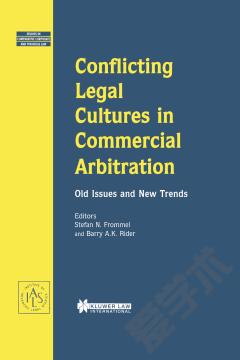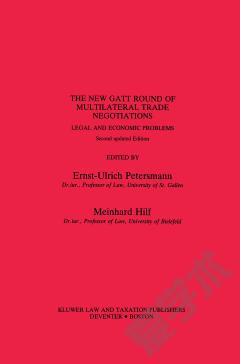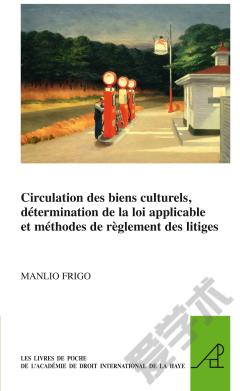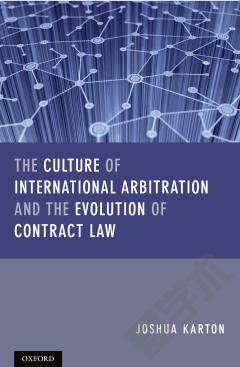Conflicting Legal Cultures in Commercial Arbitration —— Old Issues and New Trends
----- 商业仲裁中不断碰撞的法律文化:遗留问题
The great strength of the arbitration process lies in its independence from any particular legal culture. Inevitably, its cross-cultural perspective has brought it to the fore as the preferred means of resolving international commercial disputes.The Institute of Advanced Legal Studies in London has long been concerned to promote scholarship and research in the law and practice relating to alternative dispute resolution. During its jubilee year, the Institute organised a prestigious series of lectures, which formed the basis of this book on the law pertaining to international arbitration.The nine authors bring a truly international perspective to their work Their combined experience has involved them in arbitrations In many countries in Europe, Asia, North America and South America; several of them have in addition had various posts in international diplomacy and in major international organisations. They include Dr. Christian Borris, on the civil law versus common law in arbitration culture; Professor Andreas F. Lowenfeld, on the 'mix' that creates the international arbitration process; Dr. Serge Lazareff, on the search for a common procedural approach; Sigvard Jarvin, who compares the leading international arbitration seats; Jonathon Crook, on arbitration seats in the Far East; Ambassador Malcolm R. Wilkey, on the practicalities of cross-cultural arbitration; Jean Reed Haynes, on the confidentiality of international arbitration; Dr. Horacio A. Grigera Naon, on Latin American arbitration culture; and Dr. Bernardo M. Cremades, on how interactive arbitration overcomes the clash of legal cultures.Conflicting Legal Cultures in Commercial Arbitration brings international arbitration as it is currently practised into sharp focus, and will be of great value to all practitioners, academics and students in the field.
{{comment.content}}








 京公网安备 11010802027623号
京公网安备 11010802027623号